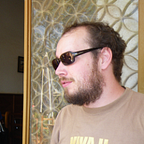Boko Haram Is Far From Defeated
It’ll take more than bullets to stop the Nigerian terror group
by PETER DÖRRIE
After months of defeats, Boko Haram has struck back hard. In a series of attacks on June 22 and 23, 2015, the Islamist group assaulted several villages in northeastern Nigeria.
The militants drove into the towns of Debiro Hawul and Debiro Bi, shot people and burned homes. Miles away, a female suicide bomber killed herself and 10 others in the village of Gujba. Forty people died in the violence. The suicide bomber was 12 years old.
Boko Haram’s war is hardly over — and will drag on indefinitely if the forces fighting the Islamist insurgency don’t change their approach.
At least 25,000 people have died in the fighting between Boko Haram and Nigeria’s security forces since 2009. One million more have fled for their lives. After years of lackluster opposition from Nigeria’s armed forces, Boko Haram captured large parts of the northeastern state of Borno in 2014.
The dynamic changed when Nigeria’s military embarked on a major offensive in early 2015. The military had improved equipment and training, and gathered support from neighbors Niger, Chad and Cameroon. Boko Haram had launched several incursions into Niger, which helped turn that country against it.
The Nigerian military retook several major towns and freed hundreds of women and children from captivity. For a time, Nigerians enjoyed a glimmer of hope. It seemed beating Boko Haram was only a question of money, soldiers and time.
But the latest militant counter-attacks have dashed these hopes. Boko Haram has rebounded and has adapted to its recent setbacks.
John Campell of the Council of Foreign Relations called the Nigerian military’s territorial gains “overstated.” While most major towns are back under government control, Boko Haram still has a strong presence in remote areas.
The militaries of Nigeria, Niger, Chad and Cameroon are touting high casualties among Boko Haram fighters. Yet there is no independent confirmation of these claims due to the absence of media from the contested zones.
The insurgency has weakened in recent months, but it still retains some conventional operational capability. In recent weeks, it mounted raids involving dozens of fighters on locations in both Nigeria and Niger.
Even worse, Boko Haram shifted its focus from capturing and holding territory to staging ambushes and suicide attacks — at dire cost to civilians. A suicide bombing in Chad’s capital N’Djamena killed 27 and wounded 101 on June 15. Bombings in Borno’s state capital Maiduguri killed dozens.
The group also declared allegiance to Islamic State and adopted some of the group’s media and military strategies. Boko Haram isn’t on its last legs. Instead, it looks to be shifting its strategy on a changing battlefield.
But neither Nigeria nor its allies have come up with an evolving strategy to counter Boko Haram. A single-minded military approach seems to be the name of the game.
That’s bad news, and here are the reasons why. For one, the war with Islamic State and the U.S.-led war in Afghanistan demonstrated that a purely military approach to counter insurgency doesn’t work.
Then there’s the issue of money. Neither Nigeria nor its regional partners will be able to sustain the current financial commitment needed to fund a military victory against Boko Haram.
This is especially true given the heavy-handed approach favored by most African militaries. According to a recent Amnesty International report, 8,000 people died in Nigerian military custody due to suffocation, starvation, murder and torture in recent years.
Yes, Boko Haram is even more violent, but it doesn’t matter. Many Nigerians don’t have much of an incentive to support one side over the other.
And while Boko Haram has become a regional problem, coordination and cooperation between the governments involved is lacking. The Chadian army operates in Nigerian territory and claims to have bombed targets on Nigerian soil in retaliation to the recent suicide attack in N’Djamena, but Chadian Pres. Idris Deby said that there was “zero” communication between units on the ground.
Tarila Marclint Ebiede, a security analyst at the Center for Research on Peace and Development at the University of Leuven, argued that fighting Boko Haram is futile as long as the Nigerian government ignores the insurgency’s political and social causes.
“Peace building within the context of internecine violent conflicts is complex and riddled with dilemmas,” he wrote in an article for World Policy.
Ebiede proposed a disarmament, demobilization and reintegration program for Boko Haram fighters. Such a program would have to take into account the extreme violence and religious indoctrination of the fighters, he said. But a similar approach after the genocide in Rwanda could serve as inspiration.
Military pressure on Boko Haram would remain an important component of such an approach. But it would become a means to an end, rather than the end itself.
